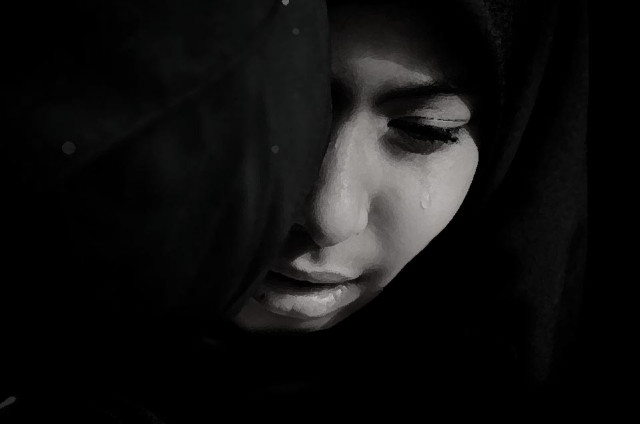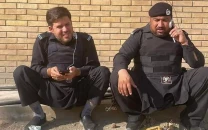Whispers of the past: Seven members short, family recalls tragedy
A year ago, a bomb planted in a TV killed Bibi’s husband and six other relatives.

Seven people of one family were killed by a bomb planted in a TV set in Sharikera last year. PHOTO: FILE
Last year, during a cold February evening in the village of Sharikera, a frontier region of Peshawar, 40-year-old Jamshed Bibi served her husband Syed Ghafoor Afridi his last supper. After his meal, he went back to his Hujra (guest room), which stood adjacent to the house, and never came back.
That day, Ghafoor became one of seven victims of a bomb planted in a television set which went off in the Hujra. All the victims were members of the same family.
“We didn’t cry, we didn’t slap our faces or tear out our clothes to mourn the deaths. We cleaned the bodies of our loved ones ourselves. We had to do so because no male member of our family was alive or able to do the job for us,” Bibi told The Express Tribune on Monday, the day she observed the first death anniversary of her husband. Ironically, Ghafoor on leave from work in Saudi Arabia and was only planning to stay for 15 days.
When Bibi and her sister-in-laws rushed towards the Hujra after the explosion, the bodies of her husband, brother-in-laws and other male family members were trapped under the rubble.

“No one in the entire village dared to come and help us as we dragged the bodies from under the iron and concrete rubble. Only all mighty Allah and His blue skies could see us. There was heavy fire at our house and the Hujra,” she said.
After the blast, it took the security forces to reach the scene. They took away the bodies in a truck for legal formalities.
A week later, Bibi migrated to Karachi with her son, Dr Saeed Afridi. Now, the mother of seven daughters and a son, lives in a three-room apartment in Pathan Colony, SITE Town.
“We had a land dispute with a family in the village (a rival group) and they, in turn, had links with the local militants of the Pakistani Taliban, headed by Changaiz and Ameer Umer, who accepted responsibility for the bomb blast,” said her son, Saeed.
Therefore, the reason for their move to Karachi was simple: they started receiving threats from the rival party and the local militant group allegedly behind the attack.
Saeed added that the militants attacked them because they were claimed to be supporters of the Adezai peace lashkar. Afridi insisted that the rival group was also behind the attack but, with his group, they resolved their issues through a settlement.
Looking back, Saeed recalls that he was in Karachi when the incident occurred. Their neighbour Kamran had requested his cousin to lend him their TV for three days. When he returned it, they promptly switched it on and it worked well for nearly fifteen minutes. Then, smoke came out of the machine and, suddenly, it exploded. Saeed heard all this from one of the men injured in the blast.

“We had no idea about what exactly had happened until the bomb disposal squad declared that there had been a remote controlled device planted in the TV,” said Saeed.
He said Kamran may have been the one who handed the TV to those who booby-trapped it, as he fled the village right after the blast.
Today, Saeed and his family cannot return to their village, their home, due to hanging threats from the militants. Even in Karachi, the situation is tense for them.
“I was attacked once in Peshawar, wounded by a bullet when I was going home,” said Saeed. “Now, I have found out that the militants have gotten information regarding our location in Karachi.” According to him, the militant elements are getting strength in the port city, and particularly in the area where they live. The extortion of money from residents has become a common practice.
Saeed spoke openly against the militants and the rival group in media, and he thinks this may be why they are threatening him.
Yet, moving his family overseas does not seem to be a feasible option, as he works for a non-governmental organisation and has limited means to provide for his eleven-member family.
“After the blast, we encountered a grave economic crisis, and it became difficult to make ends meet. My father, uncles and cousins – all of who were bread winners – are no more. All I want is to be able to shift to a safe place within the country where we can be safe.”
Published in The Express Tribune, February 24th, 2013.



















COMMENTS
Comments are moderated and generally will be posted if they are on-topic and not abusive.
For more information, please see our Comments FAQ